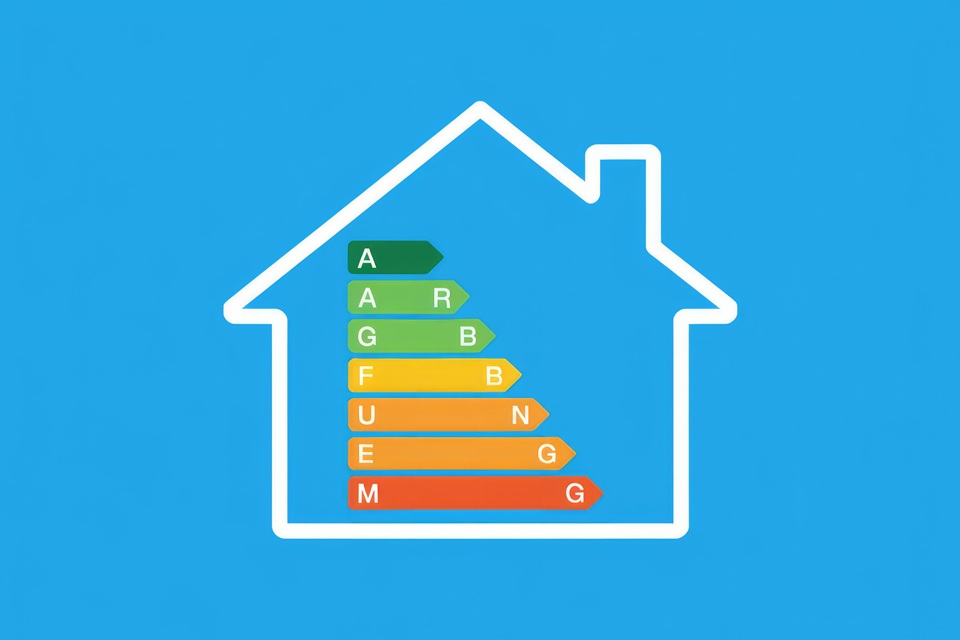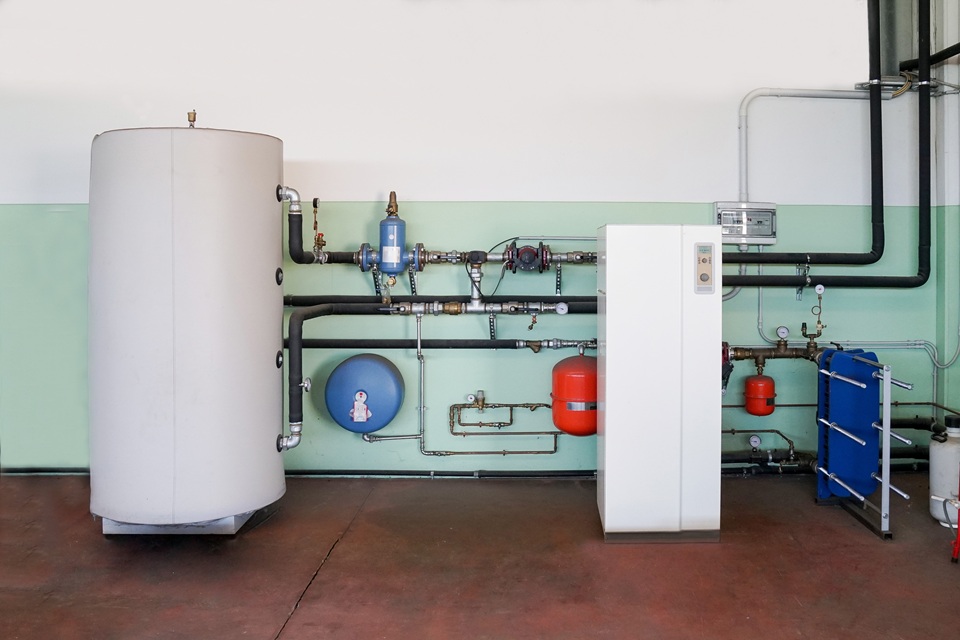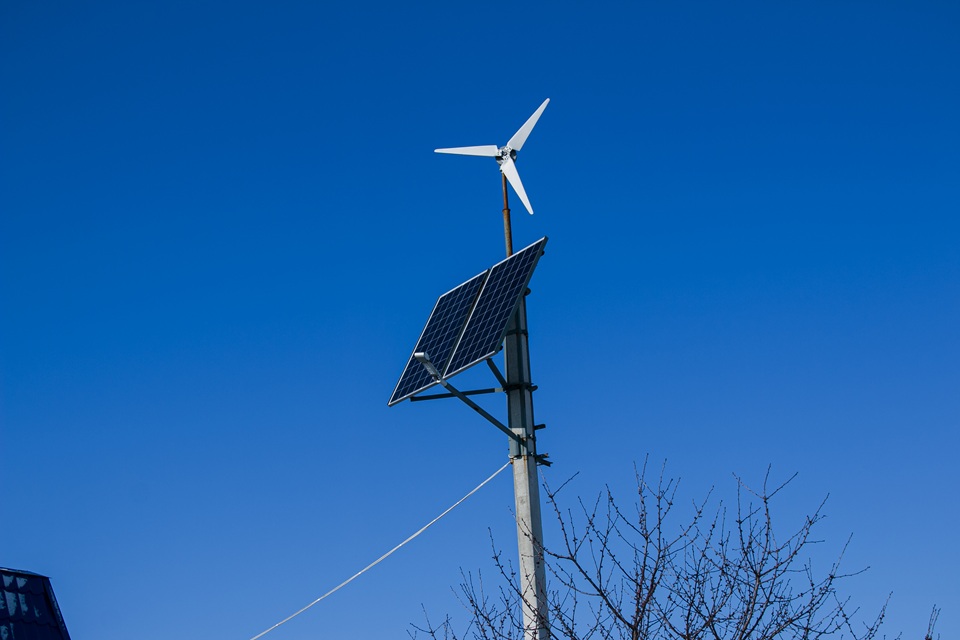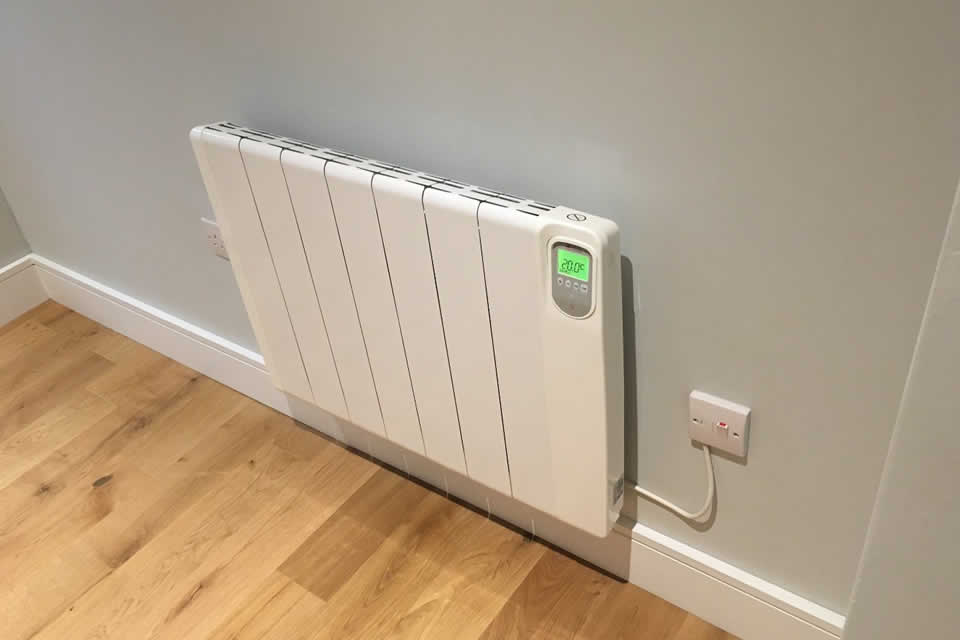How Much Does an EPC Certificate Cost?
EPC certificates offer insights into how the property uses energy and its energy costs, and they also provide suggestions and advice for improving efficiency. The ratings range from A as the most efficient, to G as the least efficient.
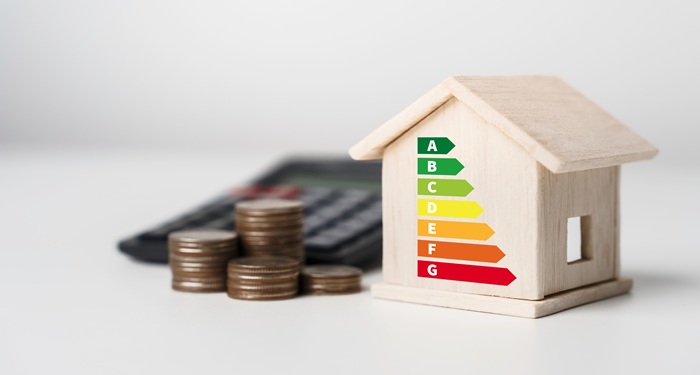
EPCs are essential for helping potential buyers or ten ants truly understand the energy usage of the building and for estimating the likely costs for utilities.
For homeowners, it can highlight any shortcomings in the building's efficiency and provide information on how to upgrade it. Ultimately, the better rated a property is, the more valuable it is on the housing market, and the lower the bills will be.
But, how much does an EPC certificate cost?
The cost of an EPC certificate can vary depending on the size, type, and location of the property, but on average, homeowners can expect to pay between £60 and £120.
Flats and smaller homes generally fall on the lower end of the spectrum, while larger or commercial buildings can command higher fees.
- How Much Does an EPC Certificate Cost?
- What are the Additional Costs of Getting an EPC?
- How Long Does an EPC Assessment Take?
- What is an EPC and Why Do I Need One?
- Why Should I Get an Electrical Safety Check?
- What Do EPC Costs Cover?
- Common Improvements to Enhance EPC Ratings
- EPC Requirements for Landlords
- EPC Validity and Renewal
- FAQs
EPC Certificate Prices
| Property Type | Average EPC Cost |
|---|---|
| Studio Flat | £60–£70 |
| One-Bedroom Flat | £65–£80 |
| Two-Bedroom House | £70–£90 |
| Three-Bedroom House | £80–£100 |
| Four-Bedroom House | £90–£120 |
| Small Commercial Premises | £100–£150 |
Prices may vary due to regional differences, the urgency of the request, and whether the EPC is being bundled with other services.
What are the Additional Costs of Getting an EPC?
Getting an EPC itself is pretty straightforward and inexpensive; however, there are some additional fees that may apply to you depending on your circumstances. Here’s a closer look at potential extra costs:
Urgent or Same-Day Service Charges
There may be some cases in which you require an EPC certificate at short notice. For this, an accredited domestic energy assessor, or a DEA, may charge a premium for a quick turnaround on the services. These urgent bookings can increase the EPC cost by £20 to £50, depending on availability and travel time.
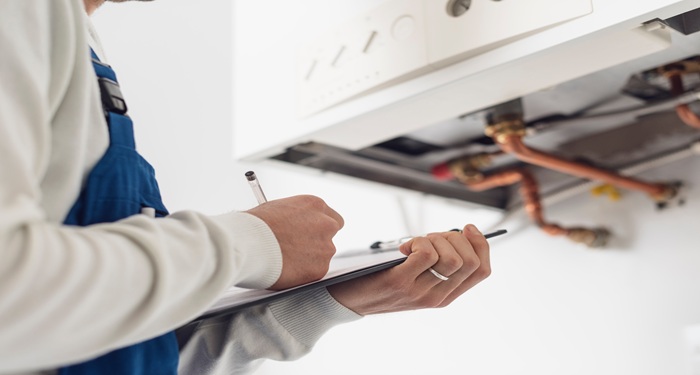
Reissue or Duplicate Certificate Fees
If you have misplaced your certificate, you may be able to have it reprinted instead of having the entire process done all over again. The cost for a duplicate or reissue is generally around £10 to £15, but this is dependent on the DEA.
Energy Efficiency Improvements Based on EPC Recommendations
One of the benefits of an EPC is that it will outline any areas in which your home could improve to boost its energy efficiency. This could be by upgrading loft insulation, upgrading your boiler to a newer model or installing new windows, and of course, all of these will come at a price. While optional, homeowners often invest in upgrades following an EPC to improve their rating.
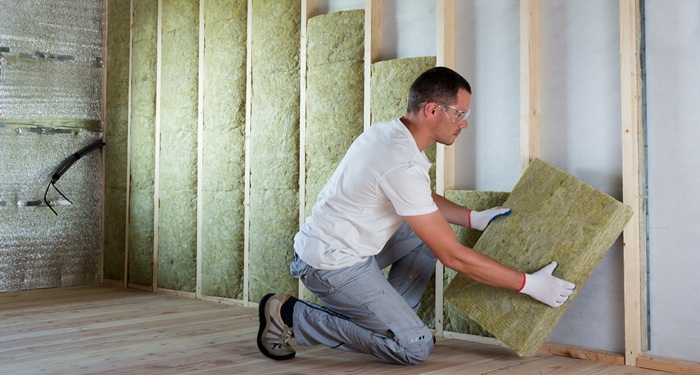
You can view individual improvement costs using HomeHow’s cost pages.
Bundled Services with Estate Agents or Letting Packages
Estate agents may offer EPCs as part of their marketing or rental packages, and while this can be convenient, you may find that the price is higher than when you book directly with an assessor. As a general rule of thumb on all trade-related jobs, you should always compare standalone quotes to make sure you are getting the best deal.
Tradesmen's Costs for Providing an EPC
The person you employ to carry out an EPC assessment will be a certified Domestic Energy Assessor. These professionals have undergone specific training and are registered to issue EPCs through the official EPC register. It is crucial that your property is on this register, because without that, any certificate is null and void. This is why it is crucial to hire an accredited assessor.
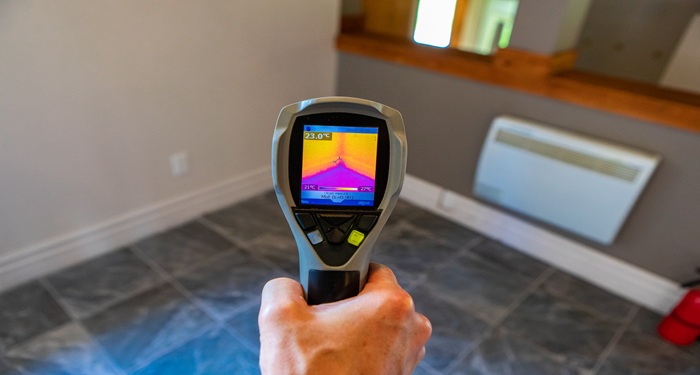
Most assessors charge a fixed fee depending on the property size and complexity. However, in some cases, they may quote based on an hourly rate. The average fixed price for a typical domestic property is between £60 and £100, but some commercial EPCs may be higher.
The labour includes the site visit, data gathering, photographic evidence, software input, and uploading the final certificate to the government database. However, larger homes with complex layouts may take longer, which would increase the cost slightly.
How Long Does an EPC Assessment Take?
The size and layout of your home will have the biggest impact on the duration of an EPC assessment, but as a general guide, check out the table below:
| Property Type | Assessment Duration |
|---|---|
| Flats | 30–45 minutes |
| Small Houses | 45–60 minutes |
| Medium to Large Houses | 60–90 minutes |
| Commercial Premises | 1–2+ hours |
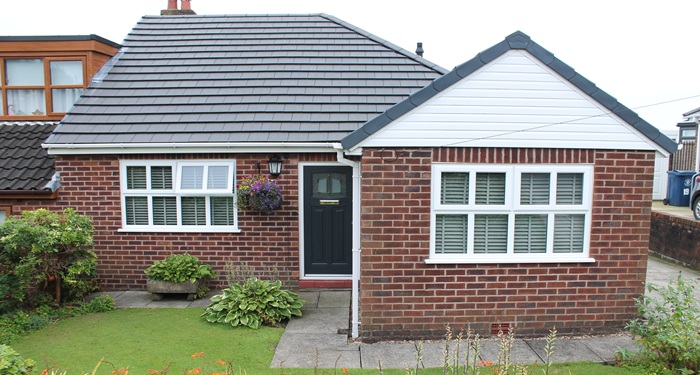
Once the on-site inspection is complete, the DEA typically generates the certificate and submits it to the register within 24 to 48 hours.
What is an EPC and Why Do I Need One?
An EPC, first and foremost, is a legal document that proves the energy efficiency rating of your property, assessing how well your home retains heat and how energy efficient the systems within your home are, such as your lighting and heating.
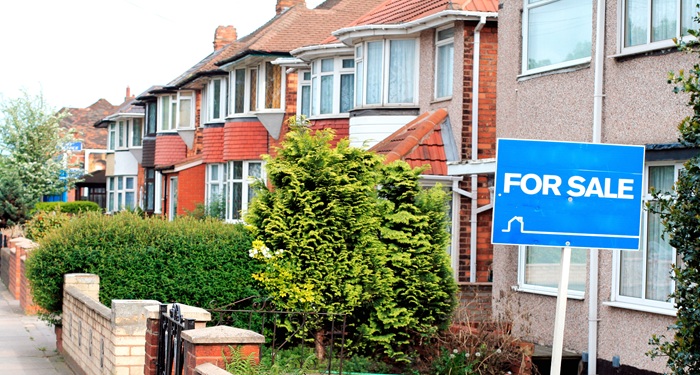
Properties are rated from A (most efficient) to G (least efficient), and the certificate is valid for ten years. The EPC is mandatory for anyone selling or letting a property, and must be made available to prospective buyers or tenants.
An EPC offers a lot of benefits that are not directly related to the legalities. For one, it will identify areas in your home that require bolstering in terms of efficiency, which in turn will reduce your energy bills. With a good EPC rating, you can then make your home more attractive to potential buyers and hold a higher asking price on bids.
For those who are environmentally conscious, a better EPC rating means your home has a lower carbon output, supporting the UK’s sustainability goals, and this, in turn, can mean you are eligible for more grants for home improvements from the government. For example, there are heat pump grants or EV charging grants.
Why Should I Get an Electrical Safety Check?
While an EPC determines the energy efficiency of your property, an Electrical Installation Condition Report or an EICR will determine how safe your home's electricity networks are. These inspections ensure the wiring and fixed installations are safe and up to standard.
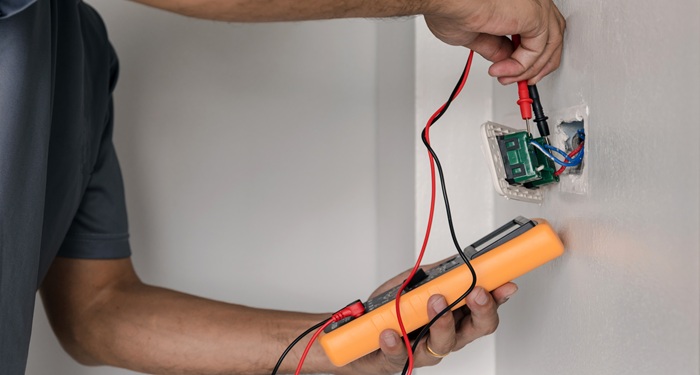
For landlords, it is a legal requirement to have an up-to-date Electrical Installation Condition Report, while homeowners benefit from the peace of mind and early fault detection it provides. It’s particularly useful before selling a home or carrying out major improvements.
You can learn more from our guide on EICR certificate costs here:
How to Reduce the Cost of an EPC
There are several ways to keep EPC assessment costs down:
Shop Around
Never settle for the first quote; instead, use comparison sites to find a range of certified local assessors.
Book Directly
If you go through an estate agent, you may end up paying an additional commission. By booking an independent DEA directly, you can save anywhere from £10 to £30.
Use Local Providers
Hiring someone based in your area avoids travel charges or minimum call-out fees that distant providers might impose.
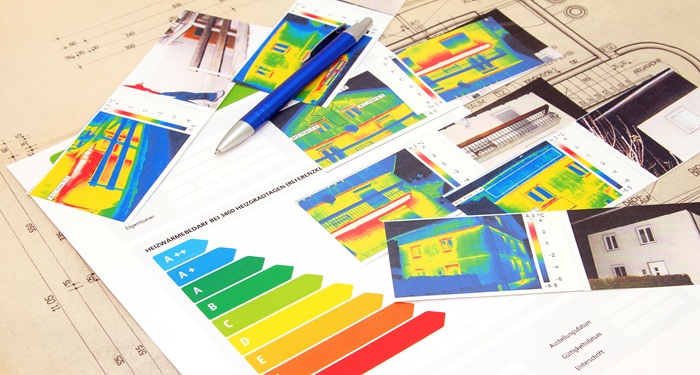
What Do EPC Costs Cover?
An EPC covers three key elements. First, an onsite inspection means the DEA will conduct a walkthrough of your property, examining your insulation, heating, windows and overall construction. Next, the DEA will input all of your property’s information into an accredited software to generate an official rating. The final step is for the DEA to write up an official EPC and upload it into the register, emailing a copy of this to the homeowner.
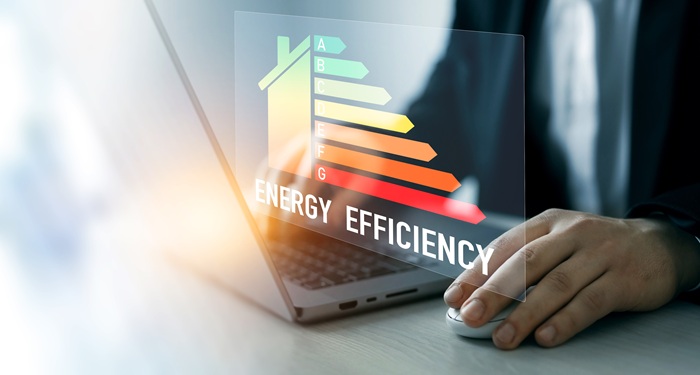
These costs do not include any repair work, energy upgrades, or additional certifications such as EICRs.
Common Improvements to Enhance EPC Ratings
Improving your EPC rating can increase property value and reduce energy bills, and some of the most impactful and common upgrades are:
- Loft Insulation: Probably the most common upgrade, adding insulation in your loft space can significantly reduce heat loss, and this typically costs around £300–£400.
- Cavity Wall Insulation: Suitable for most homes in the UK, cavity wall insulation performs a similar benefit as loft insulation and costs around £500–£600.
- Double or Triple Glazing: A rather costly, but incredibly beneficial upgrade is windows. New windows improve efficiency and comfort, and you can expect to pay £3,000–£5,000 for a full home.
- Modern Boiler Installation: One of the biggest carbon outputs in your home will be your gas boiler, if you have one. Replacing an old boiler can cost £1,500–£2,500, but the savings are notable, both in bills and in energy efficiency ratings.
- Renewable Technologies: Installing solar panels or heat pumps can enhance ratings and reduce bills, though there is a more significant initial investment.
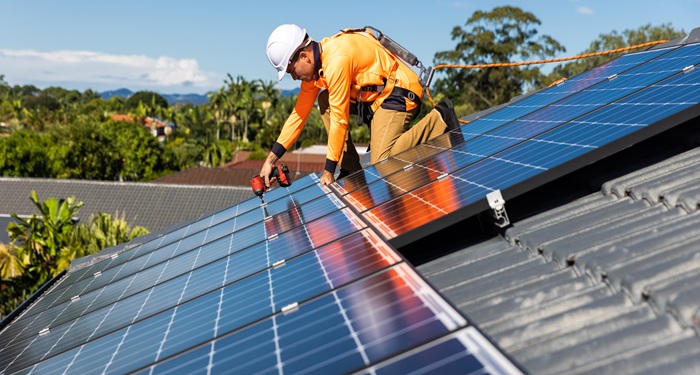
EPC Requirements for Landlords
All landlords must ensure their rental properties meet a minimum EPC rating of E, and letting a property with a lower rating can result in penalties of up to £5,000. This requirement applies to both new and existing tenancies. However, there are exceptions in some cases, such as listed buildings, but it’s crucial to confirm the eligibility and status of these homes with the local council. Landlords may qualify for financial assistance to make improvements that bring their properties up to standard.

EPC Validity and Renewal
An EPC is valid for ten years from the date of issue. However, you must renew it if:
- You’re selling or renting out your property after the certificate has expired.
- Major upgrades have been made, such as loft insulation or new windows.
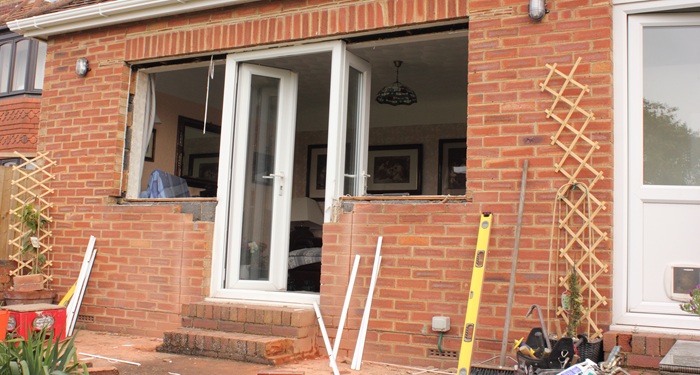
Although not mandatory between transactions, if the certificate is still valid, a new EPC can reflect positive changes that improve the rating.
FAQs
Q: How long is an EPC valid?
A: An EPC is valid for 10 years from the date of issue. You must renew this if it has expired, or if major upgrades have been made in your home, to ensure your EPC is accurate.
Q: Who needs an EPC?
A: Anyone who owns a property will require an EPC. Landlords must also have valid EPCs on all properties that they own and let as a legal requirement.
Q: Can I sell or rent my home without one?
A: No, as a landlord, you have a legal responsibility to ensure that the homes you let have a valid EPC and that the rating of your homes is at least a G standard or higher. Failure to do either of these things will leave you liable to fines. As a landlord, you may be able to receive funding towards upgrades and an EPC document.
Q: How is an EPC rating calculated?
A: A DEA, along with accredited software, will take into account everything in your home that relates to energy efficiency, from the standard of your windows to the level of insulation in your loft and walls. Once all of the data is input into the software, it will provide a result and rating, which will then be uploaded to the official register.
Q: How can I improve my EPC rating?
A: The main ways to improve your EPC rating are to lower your carbon output and reduce the amount of heat loss in your home. The first will relate to your system, such as heating, lighting and any other utility-using aspect of your home. The second will relate to insulation and windows, firstly, but can also extend to things like how your systems work with the building fabric.

